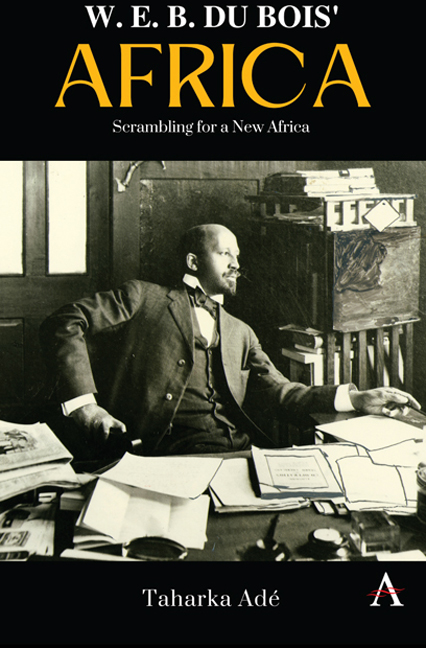5 - “Pan-Africa”
Published online by Cambridge University Press: 28 February 2024
Summary
My great-grandfather was carried away in chains from the Gulf of Guinea. I have returned that my dust shall mingle with the dust of my fathers.
—W. E. B. Du Bois
Coining “Afrocentric”
What I have offered in this analysis is a clearer lens for examining Du Bois’ scholarship, particularly as it pertains to notions of cultural-political centeredness. As aforementioned, The World and Africa is an important text when considering the time in which it was written and the issues that it raises. However, Du Bois’ scholarship was often seriously limited by Eurocentric ideals of civilization and progress. In his early year, such shortcomings were clearly displayed in the lexicon he chose to describe African people and their social, political and economic conditions. Further, he was not able to produce within the text a cultural-historical matrix and, without such, his arguments for political unity became somewhat superficial. To base an argument for unity purely based on the circumstances of a common oppressor limits the range of agency for African people.
To be sure, it is certain that unity in the face of shared oppression can occur between even the most antithetical of groups. However, Du Bois, to the best of his ability, penned a history of the African world. He intended to use this history as the basis of his argument for what it meant historically to be an African person and how African people have contributed to world history. Thus, Du Bois was acknowledging some notion of a composite African ontology comprised of various historical and contemporary African groups. His analysis displayed some understanding of historical cross-cultural relationships within the African continent, particularly as it related to his discussion of the Bantu migration. Du Bois would attempt in the last chapter, and in several works following this text, to use this historical argument of the achievement and character of the composite African identity in order to argue for Pan-African unity.
This argument involves a useful cultural composite illustration that is no different from the historical-cultural connections, and modern sociopolitical unity, Du Bois mentions in the earlier chapters of The World and Africa regarding Europeans. Nevertheless, Du Bois failed to capitalize on the cultural argument regarding African people and instead focused more so on arguments which could valorize Africa to the Western world. This effectively weakened his contention that African people should seek to “save” Africa.
- Type
- Chapter
- Information
- W. E. B. Du Bois' AfricaScrambling for a New Africa, pp. 123 - 138Publisher: Anthem PressPrint publication year: 2023



